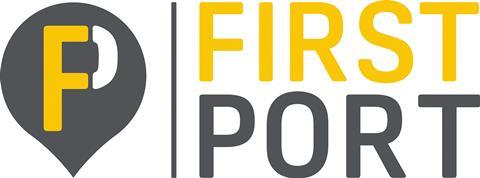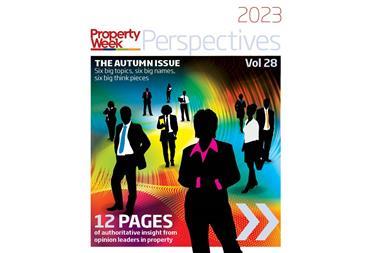Dame Judith Hackitt’s review of building regulations and fire safety in the wake of the Grenfell Tower tragedy will lead to a much more robust regulatory framework.

The property industry needs to be aware of the report’s findings and, in some cases, take immediate action.
The review found that regulations for residential buildings have not always been fully understood across the supply chain, from architects to owners. Some buildings have been built too quickly and cheaply according to the report, and relevant building safety information has not always been shared with all stakeholders.
Hackitt also found ambiguity around fire safety responsibilities throughout the design, build and occupation stages of a building – it was not always clear who should take responsibility for what.
Following the review, which is currently being examined in detail by 12 working groups, we can expect industry guidance and legislative change that will address these issues, ensuring responsibilities for fire safety are shared across the supply chain with clear handovers throughout the building lifecycle.
Building owners, called duty holders in the review, will hold ultimate responsibility for fire safety in occupied buildings. They can delegate but not avoid these responsibilities, appointing others to discharge their obligations without walking away from them. For example, property managers such as FirstPort can act on their behalf as building safety manager.
The supply chain for residential development is complex. Hackitt’s report argues for real clarity about what materials are used in a building, how it has been built and how it is modified going forward, allowing for better fire safety decision-making. Hackitt is clear that this information – from initial design, to construction and all subsequent changes throughout occupation – should be held in a single repository. This is what is termed the ‘golden thread’, but it could equally be called ‘know your building better’.
Gathering information
Owners should know what materials are on buildings, who the manufacturers are, whether the materials are combustible or not, why the building was designed the way it was and what kind of layers of protection are in place.
The review recommends that building owners gather that information for existing buildings and make it available digitally. The information must be made available to a new enforcement agency called the Joint Competent Authority (JCA) and be updated by the owner if there are fire safety changes to the building. Residents need that information too, and it should be made available to them in an easy-to-understand, accessible way.
“We believe that, post-Grenfell, most residents understand the importance of keeping their homes safe, but the relationship between owners and residents will need to be formalised”
More broadly, the review foresees a much greater role for residents in building fire safety. The ‘whole building’ approach, another key principle of the review, means the duty holder should manage risk not just in the common areas, or on the external cladding or fabric of the building, but also inside residents’ homes.
This is a significant change. We believe that, post-Grenfell, most residents understand the importance of keeping their homes safe, but the relationship between owners and residents will need to be formalised. The review recommends duty holders inform residents of their rights and responsibilities and help to educate them.
We believe guidelines and legislative changes will improve standards of fire safety in the industry. FirstPort has achieved British Safety Council five-star grading for the last two years, and there are plenty of organisations in the industry that take health and safety very seriously, many of which we work with.
Industry training
Even the best operators can learn from the review’s recommendations. The ‘whole building’ and whole industry approach that includes operators, owners, builders and residents is entirely helpful. It is consistent with the direction of travel most of us have been on, but this review should formalise and tighten up the approach.
We expect industry training and qualifications to be formalised and improved. We also believe the independent check of the industry by the JCA will result in higher-calibre work, from a building’s design stages to its occupation.

While we fully support the review and its recommendations, we would like to see a few areas examined in more detail before regulatory changes are made. Owners can only do so much to educate their residents, and we believe there needs to be a real culture change both among residents and in the government. Residents have a key role to play in helping to maintain the building and fire safety protection measures in their homes. If the government were to provide better public information to residents it would help considerably with engagement.
Under control
We welcome an increasing role for residents. However, proposed regulatory change elsewhere could shift the balance towards a commonhold system in which residents have more control of the building. In terms of fire safety, that’s a real challenge.
Commonhold should be strengthened, but we should recognise that it can place onerous responsibilities on officers of resident management companies. It worries us that in our desire to empower residents we might also give them significant obligations around fire safety that they might not be ready for.
Lastly, there is the cost issue: anywhere safety standards go up, the cost to put things right also goes up. We must work out who bears the costs of complying with new regulations on retrospective buildings, which may have been built long ago by previous owners.
The government will give its views on the report before the end of the year, and the working groups will soon report back to Hackitt. She has said she expects that by the middle of next year there will be new industry-wide guidance – but she has also said many times that the industry should not wait for that.
We at FirstPort agree. More work is needed to address specific aspects of the review, but the thrust of the report is crystal clear. The government has a big role to play, but industry itself can take extra steps to comply with existing rules, empower residents and give input to government and decision-makers about what should be done going forward. The time for change on fire safety is now.
Nigel Howell (chief executive) and Mark Varley (group head of health and safety), FirstPort
About FirstPort
With 40 years’ experience, FirstPort is the largest residential property management company in the UK. It manages 185,000 homes in England, Wales and Scotland across more than 3,900 developments and has more than 3,000 employees dedicated to looking after people’s homes.
PW Perspectives Supplement Winter 2018
- 1
- 2
- 3
- 4
- 5
- 6
- 7
- 8
- 9
- 10
- 11
- 12
- 13
 Currently reading
Currently readingLegislation will improve fire safety standards
- 14












































No comments yet